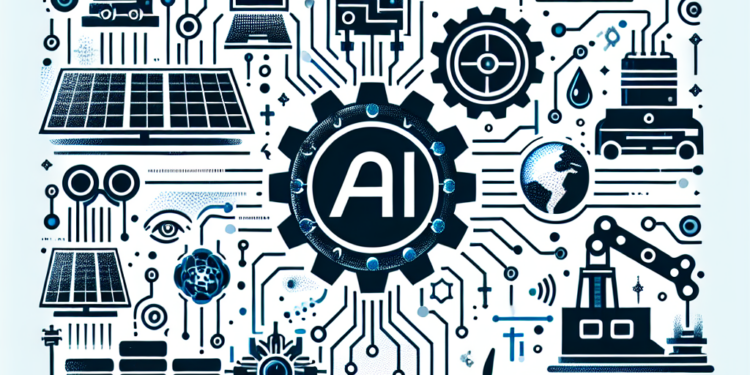Artificial intelligence (AI) has been revolutionizing various industries in recent years, and the energy sector is no exception. From power generation to distribution and consumption, AI technologies are being integrated into processes to improve efficiency, reduce costs, and enhance sustainability. The key takeaways from AI in the energy sector highlight the impact and potential of these technologies in transforming the industry.
1. Predictive Maintenance: One of the key applications of AI in the energy sector is predictive maintenance. By analyzing data collected from sensors and other monitoring devices, AI algorithms can predict when equipment is likely to fail and proactively schedule maintenance to prevent downtime. This not only improves the reliability of energy infrastructure but also reduces maintenance costs and extends the lifespan of equipment.
2. Energy Forecasting: AI technologies can also be used to forecast energy demand and generation, helping utilities and grid operators optimize their operations. By analyzing historical data, weather patterns, and other relevant factors, AI algorithms can predict future energy consumption and generation with greater accuracy, allowing for more efficient planning and resource allocation.
3. Grid Optimization: The integration of renewable energy sources such as solar and wind power poses challenges for grid operators in managing variable generation. AI technologies can help optimize grid operations by balancing supply and demand in real-time, ensuring a reliable and stable energy supply. By analyzing data from smart meters, sensors, and other sources, AI algorithms can optimize grid dispatch and reduce energy wastage.
4. Energy Efficiency: AI technologies can also help improve energy efficiency in buildings, industries, and transportation. By analyzing data on energy consumption patterns, AI algorithms can identify opportunities for optimization and recommend strategies to reduce energy usage. This not only lowers energy costs but also reduces carbon emissions and supports sustainability goals.
5. Asset Management: AI technologies can enhance asset management in the energy sector by providing insights into asset performance, health, and maintenance needs. By analyzing data from sensors, drones, and other sources, AI algorithms can monitor the condition of assets in real-time and predict potential failures. This proactive approach to asset management can improve reliability, safety, and cost-efficiency.
6. Demand Response: AI technologies can enable demand response programs that incentivize consumers to adjust their energy usage in response to price signals or grid conditions. By analyzing data on consumer behavior and preferences, AI algorithms can optimize demand response strategies to reduce peak demand, lower energy costs, and enhance grid stability. This flexibility in energy consumption can support the integration of renewable energy sources and promote a more sustainable energy system.
7. Cybersecurity: As energy infrastructure becomes increasingly connected and digitized, cybersecurity is a growing concern for the industry. AI technologies can help enhance cybersecurity by detecting and mitigating cyber threats in real-time. By analyzing network traffic, monitoring systems for anomalies, and identifying potential vulnerabilities, AI algorithms can enhance the resilience of energy infrastructure against cyber attacks.
8. Regulatory Compliance: AI technologies can also support regulatory compliance in the energy sector by analyzing vast amounts of data to ensure adherence to regulations and standards. By automating compliance checks and monitoring processes, AI algorithms can help utilities and energy companies meet regulatory requirements more efficiently and effectively.
In conclusion, the key takeaways from AI in the energy sector highlight the transformative potential of these technologies in improving efficiency, reliability, and sustainability. From predictive maintenance to grid optimization and energy efficiency, AI technologies are reshaping the way energy is produced, distributed, and consumed. As the industry continues to adopt AI solutions, it is essential for stakeholders to understand the opportunities and challenges associated with these technologies and embrace innovation to drive the energy transition towards a more sustainable future.













